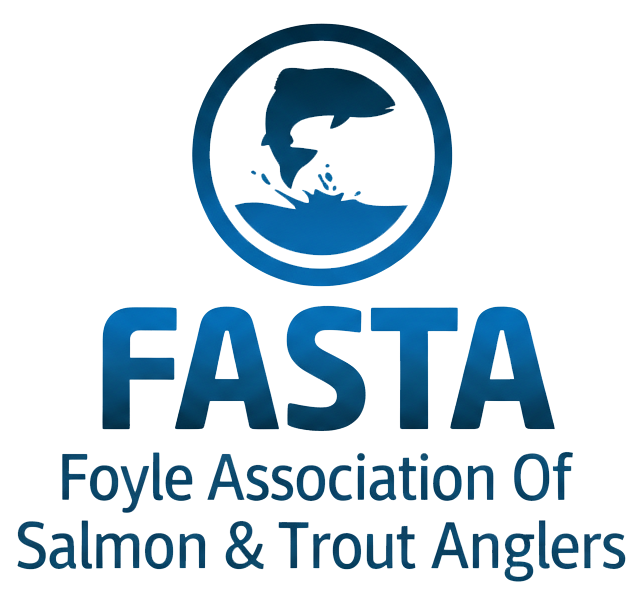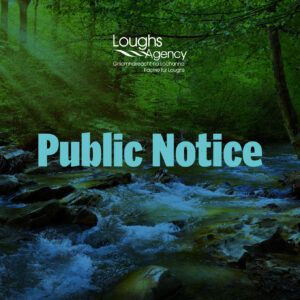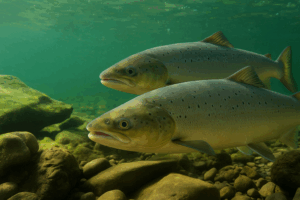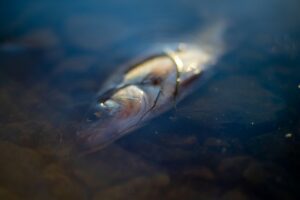Consultation Return
Fisheries & Water Environmental Bill
Download the submitted document here – FISHERIES AND WATER WATER ENVIROMENTAL BILL.docx
FASTA’s submission highlights urgent action to protect the Foyle system from pollution, strengthen enforcement and investigation, and rebuild public confidence through practical, cross-border solutions.
Read Executive Summary · Jump to Recommendations
About FASTA
FASTA (Foyle Association of Salmon & Trout Anglers) is the umbrella body for community angling clubs and private fisheries across the River and Lough Foyle system on both sides of the border. We represent around 4,000 anglers across our affiliates and work to safeguard salmon, sea trout, and the wider aquatic environment for the benefit of communities, recreation, and the local economy.
Affiliated clubs & fisheries
Community clubs: Omagh Anglers, Sion Mills Anglers, GAFF Anglers, Ardstraw Anglers, Finn Anglers, Dennett Anglers, Derg Valley Community Angling Club, River Roe Angling Ltd, Strabane & Lifford Anglers, Strabane Angling Association, Carrickmore Anglers Limavady, Killygordon Anglers.
Private fisheries: Abercorn Estates, Brookborough Estates, Glenmore Estate, Cloghan Fishery, Mulvin Fishery, Feddens Fisheries, Beattie’s Fishery, Beltrim Estates.
Executive Summary
FASTA welcomes the opportunity to contribute to the Fisheries & Water Environmental Bill. Our submission draws on professional expertise across investigation, law, engineering and public administration, and references Assembly/Oireachtas work concerning pollution response and enforcement.
We underline a positive legal obligation within both UK and Irish jurisdictions to protect the Foyle SAC and ensure effective environmental governance. Current arrangements show systemic weaknesses in prevention, monitoring, investigation, enforcement and penalties.
Core message: We need to get serious about pollution — time has run out. Raise standards, fix enforcement, and align resources with risk to protect our rivers and restore public trust.
Ecological & Legal Context
- The River Foyle and tributaries are a Special Area of Conservation (SAC). Atlantic salmon and otter populations are of national importance; lamprey and eel are also present.
- Foyle salmon are a genetically distinct, mixed-stock population, requiring robust cross-border protection and management.
- Effective protection is a legal duty shared by authorities North and South.
Key Issues Identified
Systemic weaknesses
- Fragmented responsibilities across multiple bodies; siloed processes and slow learning from serious incidents.
- Licensing decisions inadequately stress-test real-world risk and downstream resourcing for monitoring & enforcement.
- Penalties and criminal-justice outcomes fail to deter serious pollution and undermine public confidence.
Operational gaps
- Limited 24/7 emergency response and call-out capacity; too many reporting lines.
- Insufficient unannounced inspections and weak case leadership on high-risk incidents.
- Inconsistent community engagement and lack of victim-impact consideration post-incident.
Confidence & ethics
- Public confidence is eroded by repeated incidents, modest penalties, and perceived double standards.
- Policy drives (e.g., intensive agriculture, waste, energy infrastructure) have outpaced control systems.
- Questions of fairness arise where public bodies are permitted discharges while private actors face prosecution.
Recommendations
Licensing & Risk
- Introduce dynamic risk stress-testing for licence approvals (e.g., AD plants, fish farms, discharges), linking approval to enforceable, auditable mitigation.
- Mandate licensee self-regulation with digital evidence capture (tamper-evident logs, time-stamped imagery, telemetry) and automatic sanctions for non-compliance.
- Align resources to risk: ensure the bodies tasked with monitoring and investigation are adequately funded and staffed.
Inspection & Investigation
- Adopt unannounced inspections as standard for the Water Management Unit (WMU) and relevant bodies.
- Deploy Senior Investigating Officers to lead high-risk pollution cases; escalate disagreements swiftly for accountability.
- Institutionalise serious-case reviews to learn from incidents (e.g., River Blackwater) and publish lessons.
Enforcement
- Reform penalties: raise maxima for serious fish-mortality incidents (e.g., up to £250,000 and/or imprisonment).
- Clarify fixed penalty ticket (FPT) use: for minor, low-harm breaches only; set clear exclusions and meaningful levels (£500 business / £250 public).
- Bar FPT use when one public body is investigating another; ensure transparency to avoid statistical gaming.
Structures & Oversight
- Strengthen multi-agency MOUs, data-sharing and joint operations, including cross-border coordination.
- Consider a time-bound structural review to re-deploy existing skills before creating new bodies; evaluate an Oversight Commissioner model as a pragmatic option.
- Build 24/7 emergency response, streamline public reporting lines, and publish service standards.
Community & Justice
- Embed community consultation after serious incidents; collect victim impact statements for sentencing context.
- Publish transparent outcomes of prosecutions and enforcement actions to rebuild trust.
- End perceived double standards by reviewing licensed public-sector discharges in sensitive catchments.
Cross-Border Imperative: Given the Foyle’s SAC status and mixed-stock salmon, protection demands mirrored commitment and enforcement on both sides of the border.
Support This Work
- Policy: Engage on reforms to licensing, penalties, and resourcing.
- Practice: Adopt best-practice risk controls and independent auditing.
- Partnership: Expand joint operations, data sharing and 24/7 response.
Download the submitted document here – FISHERIES AND WATER WATER ENVIRONMENTAL BILL.docx
Contact
FASTA Secretary
David Nelson
Tel: 07749 398 944
Email: fasta.fishing@gmail.com




